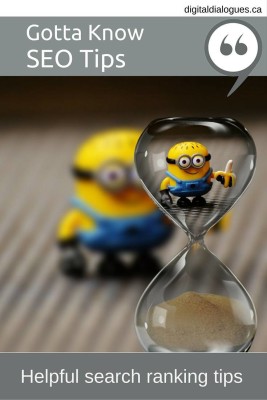 On-page SEO is an online marketing tactic that helps your website ‘show up’ in search results.
On-page SEO is an online marketing tactic that helps your website ‘show up’ in search results.
Using on-page SEO can help you to generate leads for your business without having to buy online advertising.
SEO isn’t the only way to enhance your website’s visibility in search. For a strong online presence you need to use multiple tactics including blogging and social media.
What’s the principle behind SEO?
The principle behind SEO is that the higher a web page ranks in search results, the greater the chance that users will visit that page.
By using on-page SEO tactics and paying attention to other factors important to Google and your users, you can bring more traffic to your site and generate more leads for your business.
[clickToTweet tweet=”The higher a web page ranks in search results, the greater chance users will visit that page #SEOtip” quote=”The principle behind SEO is that the higher a web page ranks in search results, the greater the chance that users will visit that page.”]
While keywords provide the foundation for on-page SEO, there are many other factors that contribute to strong search results.
Keywords
Keywords are still important for on-page SEO because they provide clues to Google about the content on your page. When copy is absent, you make it more difficult for Google (or other search engines) to know what your page is about.
So your first step in on-page SEO is to figure out your keywords. When you know what your key terms are, use them naturally throughout your content.
When you’re writing, always remember that your primary audience is your readers – not search engines. You lose the benefit of showing up in search results if you just turn your readers off with your poorly written content.
Fresh Content Counts in Search
Google is more likely to crawl your pages when you consistently add fresh content to your site. Blogging or article writing is a natural way to add new content on a regular basis. There are other added benefits to blogging:
- Blogging gives you a platform to demonstrate your expertise online
- Searchers can find you and your products or services through your blog/information
- You can rank for other important keywords that you can’t use elsewhere on your web pages
Google Cares about User Experience
In April 2015, Google announced
“We’re boosting the ranking of mobile-friendly pages on mobile search results. Now searchers can more easily find high-quality and relevant results where text is readable without tapping or zooming, tap targets are spaced appropriately, and the page avoids unplayable content or horizontal scrolling.”
[clickToTweet tweet=”Google cares about searchers. Give them a good content experience & Google will reward you in results” quote=”Google cares about its searchers’ experience. Provide them with a good experience on your website and you will be rewarded in search results.”]
Now, for better results in search, you should have a mobile-friendly (responsive) website. If don’t know whether your site is mobile-friendly, you can test it for mobile-friendliness here.
Another factor that will impact your ranking is your site speed. Fast = a better user experience. Page speed can be a double-whammy. If your page load speed is slow, Google won’t be happy but searchers won’t be either. They won’t tolerate long load time and may navigate away from your page before it is fully loaded.
You can use the Google Developer Tools to test your page load speed.
Google Notices What Searchers Do
Google tracks what searchers do when they come to your website. Do they instantly navigate back to the search results page? That’s a clue to Google that your page does not address a searcher’s query. If the searcher goes to another page, though, it can indicate
- A good match with the search query
- Interest from your searcher
So your page will rank better.
Are Users Sharing Your Content in Social Media?
Google pays attention to people’s opinions about your web pages. What shares and likes has your content received? And how many shares do your pages receive? Positive reinforcement from your readers helps your ranking in Google.
This is another reason that blogging can really help with your ranking; you will be rewarded by readers and by Google for providing helpful information.
Still … Google has a secret algorithm
Google has a ranking algorithm with hundreds of factors that impacts your ranking in search results. It is important to pay attention to those SEO components that Google also values. But you must always put your readers first.
Think about what readers want to know – what content is important to them. Give them an exceptional experience on your website with stellar content and accurate information from search.
On-page SEO is a valuable tactic that can help drive traffic to your pages and bring in more business. But it’s important to remember that it is one of a few tools that you can use to build a strong online presence.


